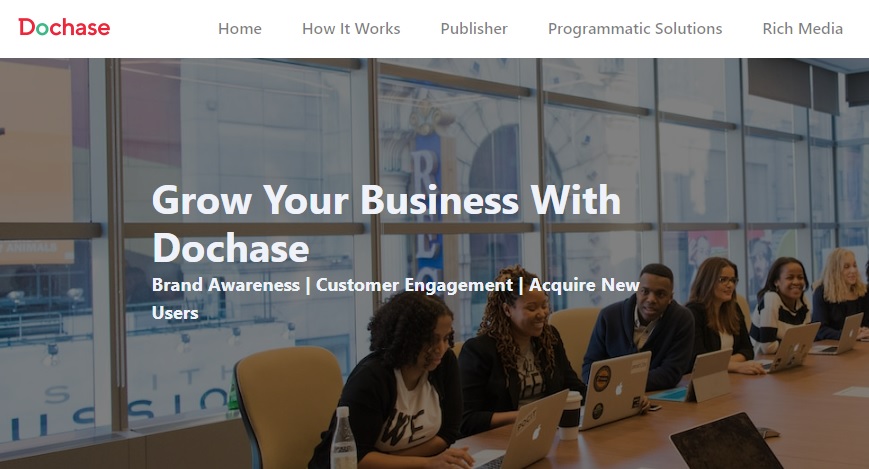Here’s a little spoiler from our upcoming African Tech Startups Funding Report (released very soon!) – marketing tech had a big year from an investment perspective in 2022. Though that fact may get buried amongst larger headline numbers, the future looks bright for a sector that is growing in importance.
Twelve marketing tech startups raised capital last year, up 20 per cent on 2021, and between them these startups banked US$34,725,000. This represented one per cent of the African total, and was an increase of 242 per cent on 2021. It maintains strong growth in this regard within the marketing space, with 2021 having been up 281.5 per cent on 2020.
Why, then, do we hear so little about the space? For one, it is very early days, and marketing in Africa is still largely analogue, with television taking a huge chunk of the budget.
Chibuike Goodnews is co-founder of Nigerian company Dochase, a cross-channel digital advertising platform for emerging markets. The platform enables businesses and advertising agencies to reach target audiences by leveraging on data, technology and AI.Businesses use Dochase to create awareness, engage customers, and increase online sales and app installations.
Goodnews says the focus on television is because the major spenders are traditional businesses whose major objectives are awareness. The space, he says, has been ripe for disruption for a while now.
“The disruption has to be a huge technology solution with the ability to aggregate first party audiences, leverage deep targeting technologies, and produce better performance. These have huge capital requirements and visionary entrepreneurs,” he said. “Martech is a huge capital intensive space, and there is currently no African giant in the space largely due to the high technical requirements and funding gaps. But the market is huge and promising.”
Another challenge beyond funding is internet penetration. With over 60 per cent of Africa’s population still offline, it makes sense for businesses to focus on primarily offline channels such as direct-to-customer marketing, flyers, radio and television to reach customers. Digital alternatives have been thin on the ground as well. Goodnews, however, says there has been increased uptake since the pandemic, a period in which, as we have seen, funding has also increased.
“Digital tech solutions for marketing became mainstream when people could no longer go outdoors,” he said. “Many who explored digital tech solutions have since continued using them. They often realised they can reach more people, measure performance, be creative, and access features they cannot see offline.”
Digital solutions like Dochase will tell you the source and cost every single user you have acquired.
“The target audience has moved online, every existing and potential customer can be reached on websites, apps, social media and mobile phone,” said Goodnews. “So the companies who want to reach them have to go digital with a tech solution. Tech will continue to grow in the share of marketing wallet as more companies employ younger people, demand performance for every dollar spent, and leverage the growth of internet in Africa.”
A major benefit of online marketing is cost, meaning startups in particular are more likely to adopt a digital-first approach to marketing. Demand, therefore, is growing, and though investor interest remains nascent, there have been notable rounds for the likes of Adzily, Terragon and Wowzi in the last couple of years.
“Local investors do not understand martech and so take careful steps. With limited funding, most investment interests move to fintech and other less complicated sectors,” said Goodnews.
The entire advertising market for Africa is about US$5 billion, not a big enough figure to tempt most VC firms. Yet there are signs of development, and Goodnews has positive hopes for the future.
“Investor interest in marketing technology will change as more investors see success stories. They will also realise that non-advertising big businesses like Jumia, Amazon, Netflix, and Opera have all become huge advertising companies,” he said. “Transsion, which has 70 per cent of the mobile phone market in Africa, has become a huge advertising company; Amazon has made over US$6 billion in advertising in just three years. More global digital businesses have seen the future to be having their own advertising revenue to power the free internet.”
He says the space needs visionary founders and investors.
“There is a huge funding gap for marketing technologies despite the huge opportunities. But when investors see success stories, they will look into more details. Digital martech thrives on top of a primary direct user or first-party solutions like search, news aggregation, e-commerce, social media, data or mobile hardware.”
If African startups can build these solutions, to a greater degree than they have done already, then the signs are that customers – and investors – will follow.


